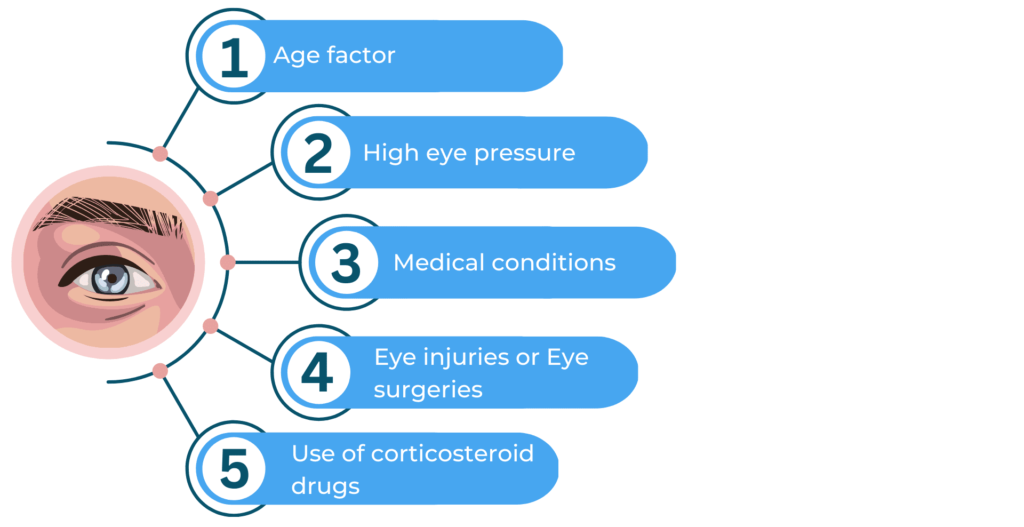Glaucoma is more commonly called Kalamotia in India and the Asian subcontinent. Glauaocma can have severe implications on one’s vision and potentially cause significant damage to eyesight that is often irreversible. Glaoama or Kalamotia affects millions of people Globally.
How Glaucoma damages vision?
Glaoama or Kalamotia happens when the pressure inside the eye goes up. Normal Inter ocular pressure (IOP) should be between 10 and 21 mmHg. An IOP Over & above 21 mmHg for a long time may be a sign of Glaucoma or Kalamotia and requires immediate treatment to protect the optic nerve from damage.
Pertinent to mention here that high Inter Ocular Pressure IOP alone doesn’t always cause Glaucoma, and some people with normal IOP can still get Glaucoma.
Who is at Risk of getting Glaucoma?
Kalamotia, or Glaucoma as it is medically called, is a group of eye diseases that targets the optic nerve of patients, causes significant damage to eyesight, and could even make people go blind. This severe eye disease can happen to anyone, but the factors mentioned below could put people at Risk.
Family history: If Glaucoma runs in your family, your chances of getting it are higher.

- Age factor: As you age, your chance of getting Glaucoma increases, and people over 60 are at a higher risk.
- High eye pressure: Intraocular pressure, or the pressure inside the eye, is a significant risk factor for Glaucoma.
- Medical conditions: Diabetes, high blood pressure, and hypothyroidism are all conditions that can make it more likely that you will get Glaucoma.
- Eye injuries or Eye surgeries: Any kind of eye injury or surgery can make you more likely to get Glaucoma.
- Use of corticosteroid drugs: Taking corticosteroid drugs for a long time may make you more likely to get Glaucoma.
Early detection is critical, and timely intervention can save vision. Hence it is essential to get regular eye exams, especially if you are in one of the high-risk groups.
Causes of Glaucoma or Kalamotia
The exact cause of Glaucoma is unknown, but many things can make it more likely that someone will get it. For example, age, a history of Glaucoma in the family, high eye pressure, a thin cornea, certain medical conditions like diabetes, and long-term use of corticosteroid medicines are all risk factors.
Symptoms of Glaucoma or kalamotia
There may be no apparent signs when Glaucoma is in its early stages. As the disease worsens, symptoms may include blurred vision, trouble adjusting to low light, peripheral vision loss, and tunnel vision. Seeing an eye doctor as soon as possible is essential if you have any of these signs.


